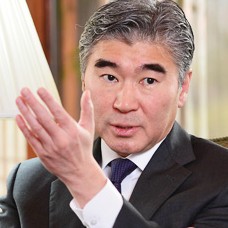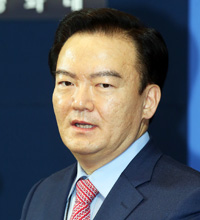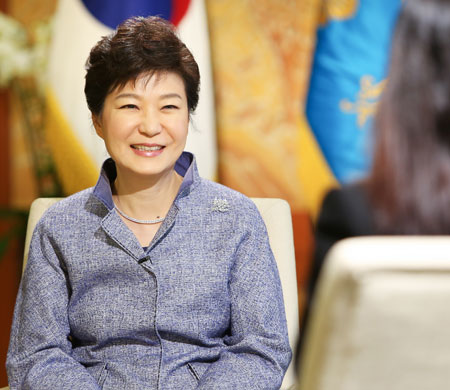- California Assembly OKs highest minimum wage in nation
- S. Korea unveils first graphic cigarette warnings
- US joins with South Korea, Japan in bid to deter North Korea
- LPGA golfer Chun In-gee finally back in action
- S. Korea won’t be top seed in final World Cup qualification round
- US men’s soccer misses 2nd straight Olympics
- US back on track in qualifying with 4-0 win over Guatemala
- High-intensity workout injuries spawn cottage industry
- CDC expands range of Zika mosquitoes into parts of Northeast
- Who knew? ‘The Walking Dead’ is helping families connect
President Park to head unification committee
By Kim Tae-gyu
President Park Geun-hye plans to preside over a special committee to prepare for the unification of the two Koreas, her top aide said Friday. The committee will be inaugurated next month.
Observers say this unprecedented move demonstrates Park’s commitment to end the six decades of separation of the two Koreas.
“Park will directly oversee the committee, which will be comprised of some 50 members from both the public and private sectors,” senior secretary for foreign affairs and security Ju Chul-ki said in a press conference.
“Heads of the foreign affairs, unification, national defense and finance ministries will be part of the committee. Two deputy chiefs will assist Park. They will have ministerial ranking.”
Ju added that the committee will meet quarterly to discuss ways of raising public interest in unification and to evaluate the work of several sub-committees that will be tasked with carrying out specific missions.
Park started emphasizing the importance of unification after describing it as a possible “bonanza” because of the new business opportunities it would bring, during her first New Year press conference in early January.
Later in the month at the World Economic Forum in Davos, Switzerland, she noted that this would benefit the whole Northeast Asia region including China and Russia.
In line with her plans to promote unification, Park promised late February that the incumbent government would establish the committee.
“President Park appears to be putting a priority on unification because an increasing number of South Koreans, especially youngsters, have lost interest in the long-overdue national mission,” said Choi Jin, head of the Institute of Presidential Leadership.
“That’s why she is administering the committee herself.”
The Institute of Peace and Unification Studies affiliated with Seoul National University reported a steady decline in the number of people interested in unification through its annual survey, which began in 2007.
In the first year of the survey, nearly 64 percent of respondents said that unification was necessary but the figure declined to 59 percent in 2010 and 54 percent last year. Analysts are predicting a possible drop to below 50 percent in the years to come.
People’s biggest concern is the financial cost of unification. Many fear that this, which some estimate would stand at several quadrillion won, will have a negative effect on South Korea’s economy.
Meanwhile, Prof. Shin Yul at Myongji University criticized the plan.
“Unification ministry officials are at a loss after learning President Park will lead the committee since their work and that of the committee overlap. Soon, the raison d’etre of the unification minister will be questioned,” he said.
“I don’t understand why Park creates a committee to assume all the work regarding unification. That’s exactly what the Ministry of Unification is supposed to do.”














